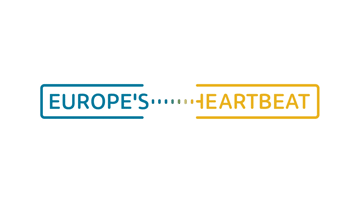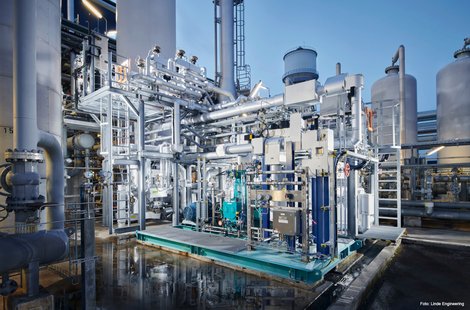This plant is the only one of its kind in the world: Linde Engineering is demonstrating in Dormagen how hydrogen can be extracted from natural gas streams on an industrial scale using a special membrane technology. The plant at Chempark represents a milestone on the road to a low-carbon economy, as it allows the existing natural gas grid to be used for the transport of hydrogen. This makes it possible to reduce carbon dioxide emissions even in sectors of the economy that are actually considered difficult to decarbonize.
"The demonstration plant in Dormagen allows us to realistically showcase the essential technology for the efficient transport of hydrogen via natural gas pipelines. It demonstrates opportunities to leverage existing infrastructure, avoiding the high costs and lengthy process that would be associated with building a hydrogen pipeline infrastructure," says John van der Velden, Senior Vice President Global Sales & Technology at Linde Engineering.
What is being demonstrated at Chempark could soon be used globally. In Europe, eleven transmission system operators are working to build the "European Hydrogen Backbone." Their goal is to build and expand a hydrogen network based largely on modifying the existing natural gas infrastructure.
At the heart of the plant is a high-performance membrane based on a robust polymer developed by Essen-based specialty chemicals company Evonik. It consists of highly selective hollow fibers that efficiently separate the hydrogen in the mixed natural gas stream from the main components methane and more complex hydrocarbons.
About Linde Engineering: Linde Engineering is a subsidiary of Linde plc headquartered in Dublin, Ireland. The company's core business is gases and process plants that extract or produce gases. Linde is the world market leader in this field. Linde Engineering specializes in hydrogen technologies and is based in Pullach, Bavaria.


